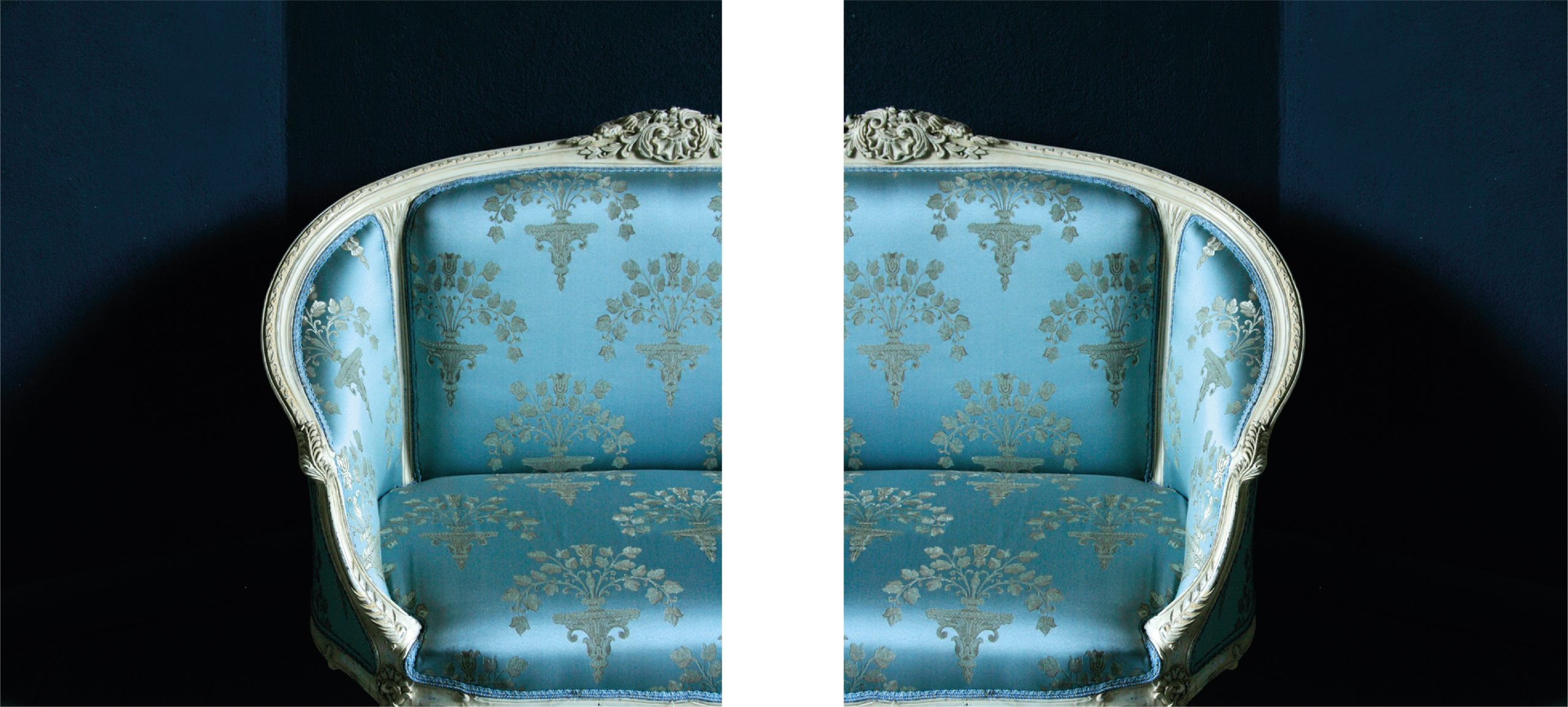
Everybody’s favourite Regency comedy of manners-Emma is coming to South Delhi in Mahesh Rao’s Polite Society! While Jane Austen’s Emma poked gentle fun at the little foibles and economic exigencies of the exceedingly polite middle-class and county gentry in Regency England, Polite Society reimagines Emma in contemporary Delhi to portray a society whose polished surface often reveals more than is intended.
Both Emma and Polite Society explore social mores through the overconfident yet inexperienced eyes of young women coming of age in an ornate world. As twenty-one year old Emma Woodhouse ‘handsome, clever, and rich, with a comfortable home and happy disposition’ and Ania Khurana- the ‘young beautiful and rich’ resident of Prithviraj Road, attempt to amuse themselves by applying their exceptional industry to their pet projects, they realize that youth, wealth and beauty will take you far in polite society but cannot influence individuals to your liking.
Emma and Ania are both incredibly blessed by both nature and society and thus have the benefits and pitfalls of a plethora of choices.
“The real evils, indeed, of Emma’s situation were the power of having rather too much her own way, and a disposition to think a little too well of herself; these were the disadvantages which threatened alloy to her many enjoyments. The danger, however, was at present so unperceived, that they did not by any means rank as misfortunes with her.”
-Emma
“It was not unusual for Ania to contemplate drastic hypothetical choices in this way. The comforts of her own life meant that she was seldom called upon to discriminate or restrict: in the Khurana household, they usually ordered four of everything. As a result, this kind of grandiose conjecture had always come to her as something of an exertion but also a thrill.”
– Polite Society
~
Emma and Ania barely remember their respective mothers. The most significant (though very indulgent) maternal figures in their lives are a charming governess–Miss Taylor and a maiden aunt–Renu Bua respectively. Both get married and move away at the beginning of both books (largely thanks to Emma’s and Ania’s matchmaking.)
“Even before Miss Taylor had ceased to hold the nominal office of governess, the mildness of her temper had hardly allowed her to impose any restraint; and the shadow of authority being now long passed away, they had been living together as friend and friend very mutually attached, and Emma doing just what she liked; highly esteeming Miss Taylor’s judgment, but directed chiefly by her own.”
–Emma
“While Ania loved her bua’s presence in the house, finding in her someone even more indulgent than her father, she was stricken by what she saw as the tragedy of Renu’s life. A firm believer in the elemental nature of soulmates, Ania felt that it was never too late.”
-Polite Society
~
Mr Weston, formerly of the militia, cheerful, popular and well-liked, marries Miss Taylor and could be the Regency twin of the genial Colonel Suraj Singh Rathore who marries Renu Bua.
“He quitted the militia and engaged in trade, having brothers already established in a good way in London, which afforded him a favourable opening…He had, by that time, realised an easy competence—enough to secure the purchase of a little estate adjoining Highbury, which he had always longed for—enough to marry a woman as portionless even as Miss Taylor, and to live according to the wishes of his own friendly and social disposition.”
-Emma
“Colonel Suraj Singh Rathore, formerly of the Garhwal Rifles Ania discovered over the course of the afternoon that he was widowed, with no children, and owned a few bungalows scattered around the Kullu and Kangra valleys of Himachal Pradesh.”
-Polite Society
~
Harriet Smith and Dimple are Emma’s and Ania’s friends//protégés. Harriet is the illegitimate daughter of a tradesman and a student at a nearby school. She is starry-eyed at being taken up by so great a personage as Emma Woodhouse. Dimple is a small-town girl working for a PR-start up in Delhi, Dimple can’t believe that she has actually made friends with Ania Khurana who seems to move in a rarefied and almost surreal atmosphere of wealth and elegance.
“She was not struck by any thing remarkably clever in Miss Smith’s conversation, but she found her altogether very engaging—not inconveniently shy, not unwilling to talk—and yet so far from pushing, shewing so proper and becoming a deference, seeming so pleasantly grateful for being admitted to Hartfield, and so artlessly impressed by the appearance of everything in so superior a style to what she had been used to, that she must have good sense.”
–Emma
“Dimple almost glowed with pleasure. She had only met Ania a few months ago at a PR event and was still unaccustomed to the idea that she could be privy to plans involving the Khurana family.”
-Polite Society
~
The patronizing benevolence that governs Emma and Ania’s friendships towards Harriet and Dimple respectively
“‘She would notice her; she would improve her; she would detach her from her bad acquaintance, and introduce her into good society; she would form her opinions and her manners’.”
-Emma
‘In some ways, Ania’s initial interest in Dimple’s affairs could be placed on the same spectrum of charitable instincts as the one that led her to the animal shelter…But over time she had become genuinely fond of Dimple and didn’t see why the girl shouldn’t reap the rewards of a superlative Delhi social life just because of her unfortunate beginnings.’
-Polite Society
~
Robert Martin, the kind local farmer, and Ankit–resident of Lajpat Nagar and owner of Tip-Top fashions are perfectly likable but highly unsuitable (in Emma’s and Ania’s opnion) suitors of Harriet and Dimple respectively.
“His appearance was very neat, and he looked like a sensible young man, but his person had no other advantage; and when he came to be contrasted with gentlemen, she thought he must lose all the ground he had gained in Harriet’s inclination.”
–Emma
“Dimple would defend him, it was in her nature: he had a lovely face, but more than that, he was respectful and honest; she owed the family many kindnesses. Besides their business was doing so well; in fact, they were opening a second branch of Tip-Top Fashions soon. But poor Dimple, it would all be such a terrible waste.”
-Polite Society
~
The persons of dubious character that the equally naive Emma and Ania find suitable for their protégés: Emma attempts to bring Harriet to the notice of Mr Elton, the local vicar just as Ania tries to set up Fahim, a rising journalist with Dimple. However these are serious miscalculations as both men don’t seem to notice the match-making efforts going on, and think that that the heiresses are romantically interested in them.
“‘She found her subject cut up—her hand seized—her attention demanded, and Mr. Elton actually making violent love to her: availing himself of the precious opportunity, declaring sentiments which must be already well known, hoping—fearing—adoring—ready to die if she refused him; but flattering himself that his ardent attachment and unequalled love and unexampled passion could not fail of having some effect, and in short, very much resolved on being seriously accepted as soon as possible. Without scruple—without apology—without much apparent diffidence, Mr. Elton, the lover of Harriet, was professing himself her lover.”
-Emma
Fahim meanwhile thinks “‘Ania’s pursuit had been relentless. When he thought about the public praise, the constant communication, and the welcome into her home, it seemed almost starry-eyed. He was surprised by the awkward use of Dimple as some sort of fig leaf. He had never imagined that a girl like Ania would need the presence of an inconsequential friend to maintain a sense of propriety.’”
-Polite Society
~
The insufferably perfect paragons of perfection that Emma and Ania compete with (although they would never admit it) are Jane Fairfax and Kamya Singh-Kaul
“Why she did not like Jane Fairfax might be a difficult question to answer; Mr. Knightley had once told her it was because she saw in her the really accomplished young woman, which she wanted to be thought herself; and though the accusation had been eagerly refuted at the time, there were moments of self-examination in which her conscience could not quite acquit her.”
-Emma
“Also lying there, in plain sight, was a copy of Kamya Singh-Kaul’s book. Her own novel, which she had introduced into conversations with such confidence a few months ago, now felt like a burden that oozed reproach, a secret failure that precipitated a rush of anxiety and hopelessness every time she thought about it. She picked up Kamya’s book and felt an unpleasant contraction in her chest as she read the cavalcade of breathless quotes from distinguished authors. Her author photograph—dark lips, cheekbones, the glaze of a museum piece—was exactly what Ania would have expected.”
-Polite Society
~
And finally, the significant others-to-be! Mr George Knightley, a family friend and relative by marriage is as dependable, intelligent, and unconcerned about appearances as Dev Gahlot, family friend and relative of Ania. Although both Emma and Ania often trade barbs and spar with Mr Knightley and Dev respectively, they also value their opinions the most.
“Mr. Knightley, a sensible man about seven or eight-and-thirty, was not only a very old and intimate friend of the family, but particularly connected with it, as the elder brother of Isabella’s husband. He lived about a mile from Highbury, was a frequent visitor, and always welcome.”
-Emma
“The same jacket day after day, the satchel with a broken zipper, the fraying above the shirt pocket, she was convinced it was all an affectation, a way of indicating to the world that their owner concerned himself only with matters of sublime worth and not mere flummeries. They had practically grown up in each others houses and she could almost predict his every gesture.”
-Polite Society
~
Both Mr Knightley and Dev are quite clear-headed and warn Emma and Ania respectively about the dangers of treating their friend’s like improvement projects.
“How can Emma imagine she has anything to learn herself, while Harriet is presenting such a delightful inferiority? And as for Harriet, I will venture to say that she cannot gain by the acquaintance. Hartfield will only put her out of conceit with all the other places she belongs to.. I am much mistaken if Emma’s doctrines give any strength of mind, or tend at all to make a girl adapt herself rationally to the varieties of her situation in life.”
-Emma
“‘I made her feel uncomfortable? It’s not me who’s using her for my own purposes, adopting her for some kind of mission civilisatrice.’”
–Polite Society
Keenly observed, sharply plotted and full of wit and brio, Polite Society reimagines Jane Austen’s Emma in contemporary Delhi to portray a society whose polished surface often reveals far more than is intended









